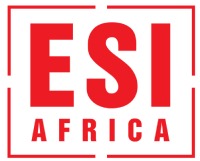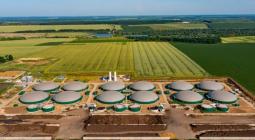Uganda: Biogas powers refugee and host community clinics
The biogas is produced from abundant waste sources, resulting in a scalable and sustainable waste-to-energy solution
Ugandan health centres in distant refugee and host community settlements can now keep life-saving medical equipment operational without power outages thanks to an innovative biogas system developed by Biogas Solutions Uganda Limited (BSUL) and Inclusive Energy.
According to Sustainable Energy for All (SEforALL)this initiative, which is part of the Powering Healthcare Innovation Fund’s first cohort, is using energy access to change crucial healthcare services.
BSUL, headquartered in Kampala, Uganda, is pioneering the installation of biogas generators and the use of bottled biogas as a sustainable energy source for distant and underprivileged healthcare facilities.
Michel Muvule Pinto, Programme Director at BSUL, said they use pure biogas to power biogas generators and deliver dependable electricity. “We’re able to deliver this to any facility and train the staff to use this affordable source of power to improve service delivery.”
SeforAll states that the biogas systems provide clean, reliable energy for lighting, sterilising medical equipment, and operating refrigeration and laboratory appliances such as blood and vaccine refrigerators and electric autoclaves. The biogas is produced from abundant waste sources, resulting in a scalable and sustainable waste-to-energy solution.
BSUL is collaborating with UK-based Inclusive Energy, which is providing the project with Smart Biogas Meters for real-time remote monitoring. This computerised solution assists in tracking biogas usage, detecting leaks and forecasting requests, setting the framework for a usage-based pricing system for healthcare facilities.
BSUL’s biogas project for refugee settlements and a community in Uganda
BSUL’s biogas project is being rolled out in two refugee settlements and one host community neighbourhood, in health centres providing preventative, promotive and curative care including maternity and laboratory services:
- Yinga Health Center III, Imvepi Refugee Settlement, Terego District serves a catchment population of 26,000.
- Rhino Camp Health Center IV, Rhino Camp Refugee Settlement, Madi-Okollo District serves a catchment population of over 18,000.
- Odupi Health Center III, Odupi Subcounty, Terego District (host community) serves 20,000 patients.
To ensure long-term sustainability, BSUL is training healthcare workers and local technicians on how to operate and maintain the biogas systems and medical equipment provided. Training is provided via a unique online/offline programme created in collaboration with Dutch tech startup SkillEd.
At Imvepi Refugee Settlement’s Living Lab, a 10-ton daily-feed bio-digester is also under development. This plant will function as a central production and bottling hub, providing numerous green employment opportunities and assuring a consistent supply of biogas to collaborating health centres.
According to SEForALL, funding for this project came from the Powering Healthcare Innovation Fund, which was established in 2024 by SEforALL and is funded by UK government aid through the Transforming Energy Access (TEA) initiative.
The fund is designed to unlock novel approaches and ideas that can advance healthcare electrification. Following the success of the first round, SEforALL has now launched the second funding cycle to scale impact.
Out of 84 applicants, three grantees were selected in the first round, with BSUL and IE receiving a grant of $85,000 to implement their innovative biogas-powered healthcare solution.
Project implementation began in September 2024 and is expected to conclude this month.
Charlie Knight, Senior Energy Officer, SEforALL, who manages the Innovation Fund, said: “This initiative represents a promising leap toward sustainable, resilient healthcare infrastructure, especially in refugee and host communities. It exemplifies the potential of local innovation and global partnerships to address critical energy access challenges in the health sector.”
Cover photo: Doctors are now able to run medical equipment without interruption Image source: SEforALL.



